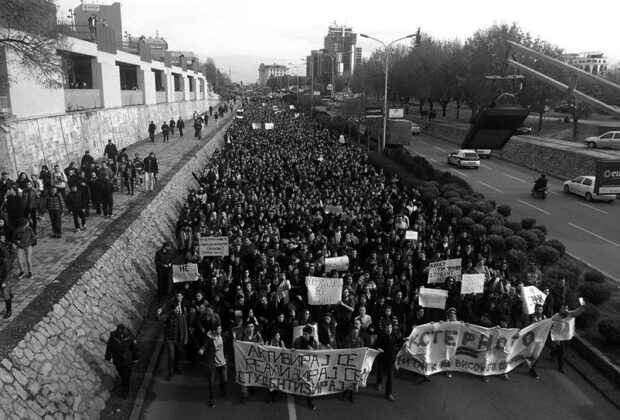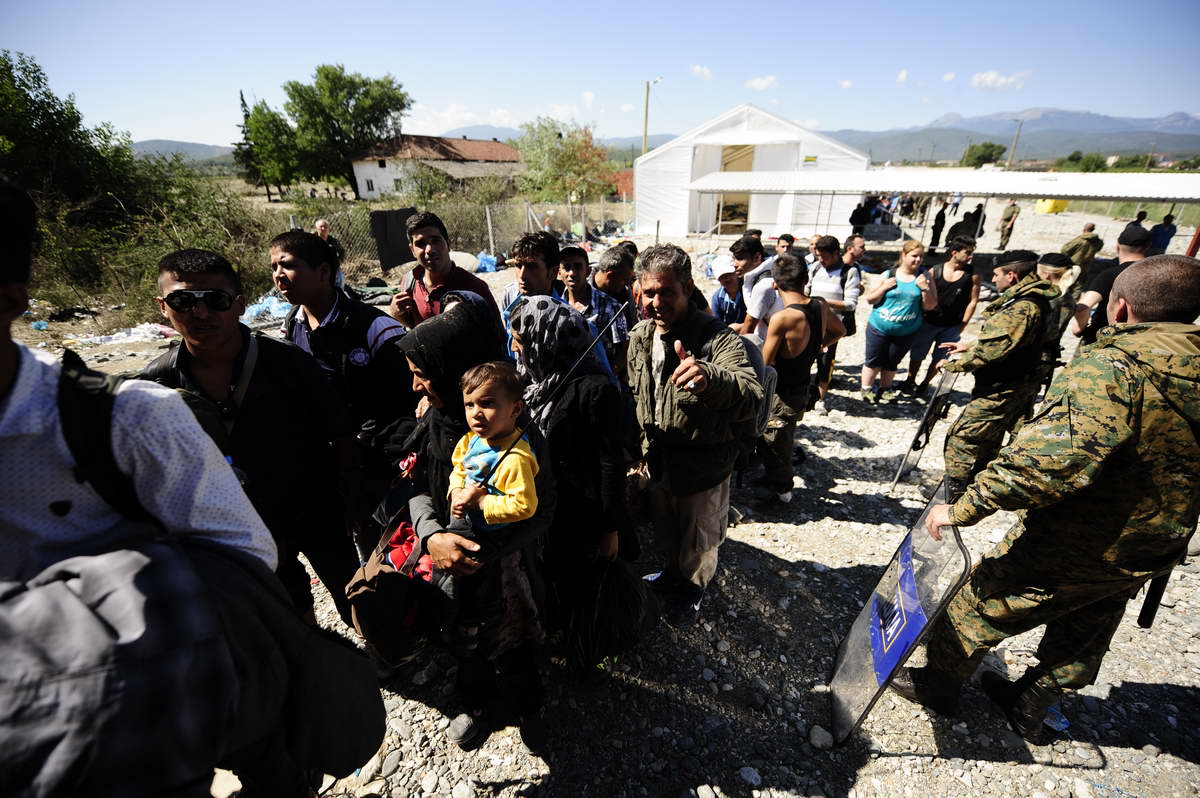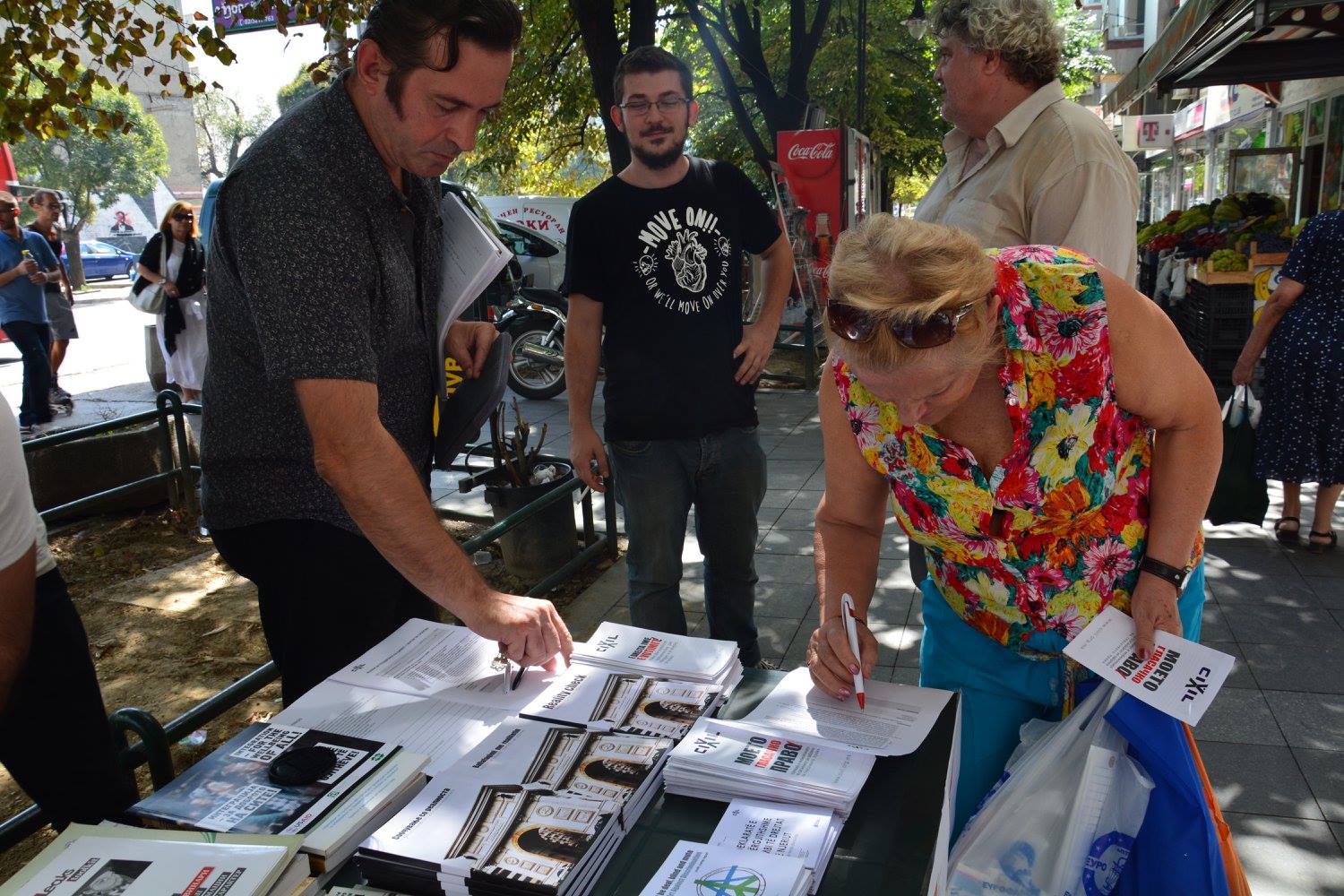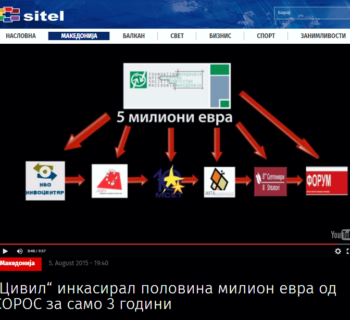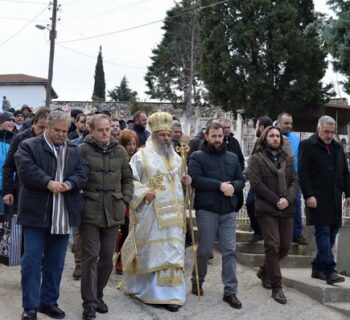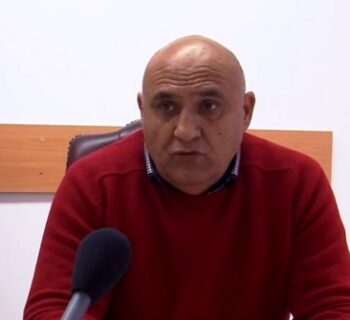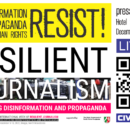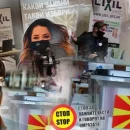Ahead of the visit of the Commissioner for European Neighbourhood Policy & Enlargement Negotiations, Mr. Johannes Hahn, we at CIVIL – Center for Freedom believe that we need to offer a quick recap of our standpoints and contributions to the process of overcoming the political crisis in the Republic of Macedonia. This, in particular, regarding elections related issues.
CIVIL is involved in elections monitoring since 2008 and has gained extensive experience in this area, introducing new approaches and methodologies that correspond with the country’s reality. Political crisis, in our view, has started already in 2008, and was only getting worse, particularly since the forceful ousting of the opposition MPs on December 24, 2012. After the series of public exposure of the wiretapped conversation ordered by the government and revealed by the opposition, the international community has offered its assistance and mediation, which resulted with signing political agreements on June 2 and July 15.
CIVIL has issued numerous public releases with analysis and recommendation on the process as a whole, including those that are related to the elections. It is important to mention here that CIVIL has revealed most of the electoral fraud in its reports “Unscrupulous struggle for power” on the local elections in 2013 and “Democracy disqualified” on the presidential and pre-term parliamentary elections in 2014. Wiretapped conversations revealed by the opposition are a bitter confirmation of our findings on the elections, as well as of the numerous reports on human rights situation in the country, issued in the last decade or longer.
Here, we would like to outline the summary of the main recommendations that we issued in the last five months in an attempt to prompt the domestic and international public on the burning issues that need to be solved or are in process of being solved.
MACEDONIA – ONE ELECTORAL DISTRICT; OPEN LISTS; VOTING OF THE DIASPORA
Macedonia should become one electoral district. We are advocating for open lists in order to obtain greater influence of voters. These solutions have been presented to the public for quite some time now, but were ignored by the ruling parties. The electoral model of the Republic of Macedonia has been amended several times, but solutions that would lead to the representation of all communities and of smaller political parties were never taken into consideration, such as the model under which the whole country is one electoral district.
At the same time, open candidate lists will ensure greater democracy within political parties, and more importantly, they will increase the accountability of MPs towards their constituents.
The voting of the diaspora must be redefined and ensure that the value of the vote of the diaspora is equal to that of the voters in the country. The most efficient way to achieve this is that the diaspora will be voting in one electoral district, and that is Macedonia.
CIVIL also offered a series of other solutions within the electoral system in the country and shall continue with their presentation to all citizens, not just to the participants involved in the negotiations behind closed doors.
We are proposing specific solutions with simple and clear measures that must be taken in order to eliminate the serious shortcomings of the electoral system. Certainly, we are aware that political will and virtue are required for their adoption and implementation.
SOLUTIONS FOR THE CATASTROPHIC CONDITION OF THE VOTERS REGISTER
The voters Register is in a catastrophic condition. During the elections in 2013 and 2014, CIVIL revealed the problem with the non-existing entrances, residence buildings, apartments, phantom voters; CIVIL managed to disclose the demographic intervention and the operation of Pustec, and many other serious problems that have provided citizens with an unforgettable voting experience in the electoral processes as of 2008. The reports Unscrupulous Struggle for Power from 2013 and Democracy Disqualified from 2014, can serve as a reminder of these extremely difficult and disgraceful elections.
Therefore, we support the model of an active voter registration that should be compulsory for all. In that context, in order to avoid further manipulations with the number of voters and demographic interventions, the Law on registration of residence needs to be improved. The problem with multiple documents that emerged during last year's elections will be solved by providing a fingerprint during the active registration.
REFORMS IN THE STATE ELECTIONS COMMISSION (SEC)
The reforms in the SEC are essential for the elections. We believe that the SEC should be a professional body composed of domestic and foreign experts and representatives of civil society, rather than political parties’ representatives. Given the circumstances, such a fundamental reform seems impossible at this time, but must be taken into consideration and implemented in the foreseeable future.
If such a reform is not possible at this time, then it is important for the opposition to have a majority in the SEC in order to ensure conditions for free elections. This majority should be realistic, and not fictitious, as is the case with the current composition of the SEC when the opposition was practically a minority during the past elections.
At the same time, the SEC should be the main carrier of the election process and of all the measures and projects related to the electoral processes. The competencies of SEC must be increased and not just on paper. One of the most important competencies of the SEC should be the Voters Register, not to depend on the will of the institutions, which have justly lost their trust, as is the case with the Ministry of Interior.
REFORMS OF THE PUBLIC BROADCASTING SERVICE MRTV AND THE AGENCY FOR AUDIO AND AUDIOVISUAL MEDIA SERVICES
There will be minimal effects by reforming only the public broadcasting service MRTV, as the corrupt practices will continue furthermore in regards to the remaining media in the country, whose impact is much greater.
Therefore, the control over the Agency for audio and audiovisual media services (AVMS), and accordingly over the Agency for Electronic Communications (AEC), needs to be undertaken by the opposition in cooperation with independent experts and the civil society.
EARLY PARLIAMENTARY, PRESIDENTIAL AND LOCAL ELECTIONS
Civil - Center for Freedom has repeatedly stressed the need for early local and presidential elections in 2016, parallel to the early parliamentary elections in 2016.
This statement is based on the long-term monitoring of our organization and on the conclusions made in the reports on the elections in 2013 and 2014, as well as other reports and analyses and public demands by the government and other relevant organizations and institutions at national and international level.
POSTPONEMENT OF THE TERM FOR ELECTIONS
We, CIVIL – Center for Freedom, reiterate the demand to extend the deadline for elections, scheduled for April 24, 2016, since the ruling parties have already breached all other deadlines and violated the agreement. Ruling parties obstruct the democratic process, which will lead to strengthening and de-politicization of institutions, and creation of conditions for free elections.
Therefore, the country needs more time to prepare for free elections and immediate implementation of the political agreement.
This post is also available in: Macedonian
 Македонски
Македонски Shqip
Shqip English
English
